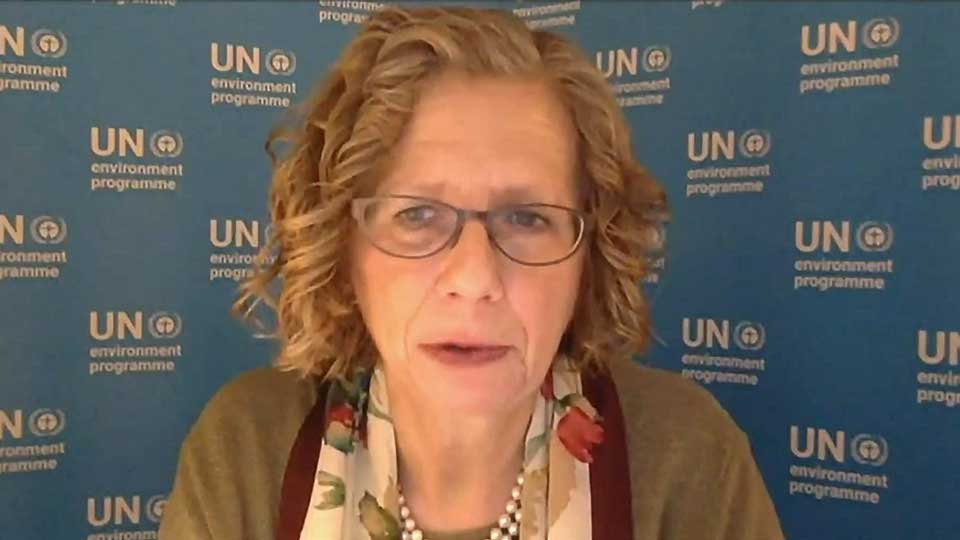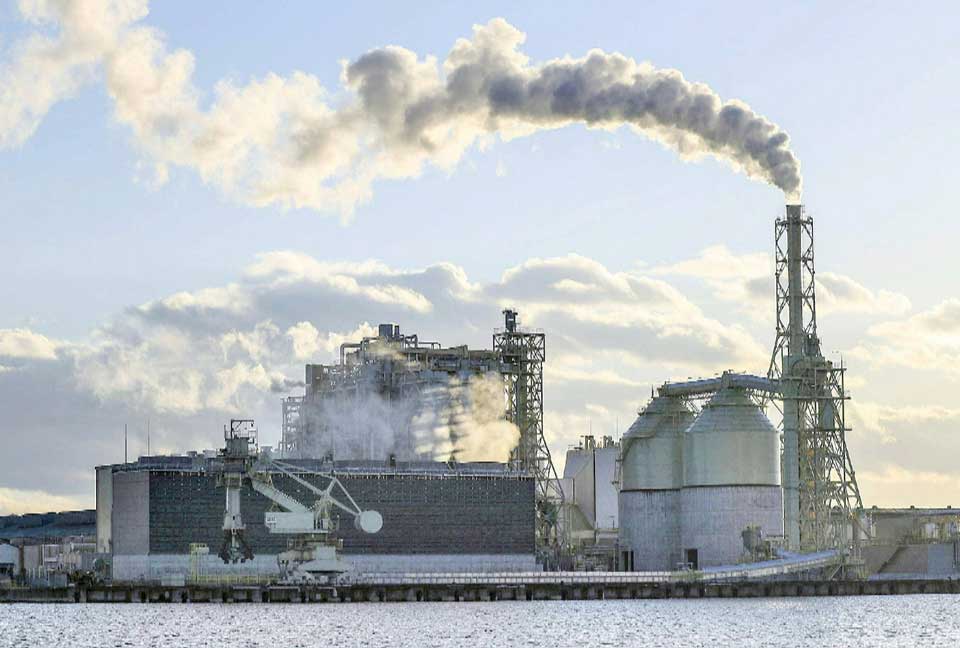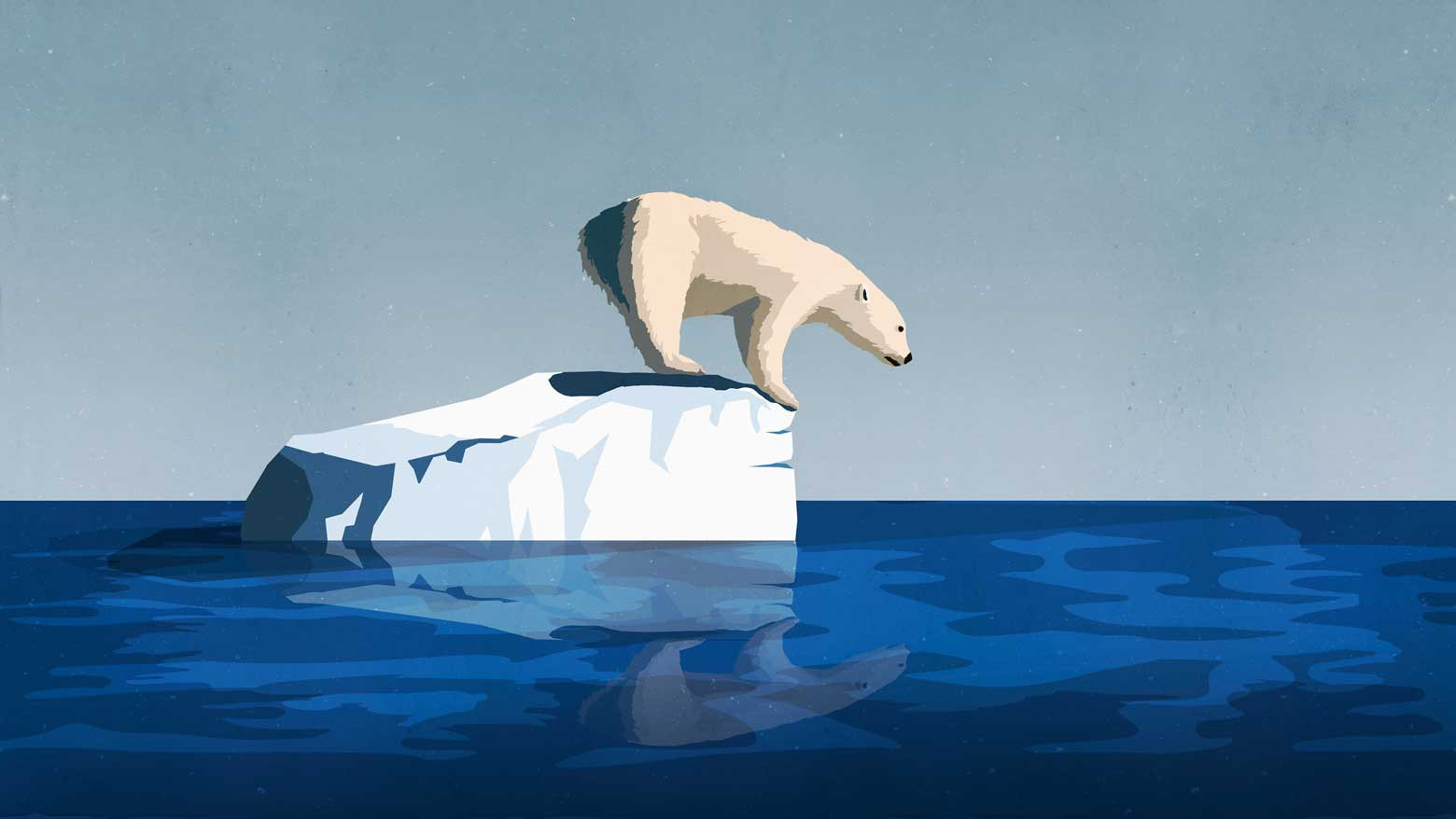Economic slowdown has "negligible" impact
Andersen says that despite the reduced economic activity caused by the coronavirus pandemic, there has only been a slight drop in carbon emissions—a projected 7% decline compared to last year. She says that to meet the Paris target, a dip of this level is needed every year, and not only under extraordinary circumstances of economic inactivity that are unlikely to be repeated.
She adds that hopes of achieving the target largely depend on the efforts of the handful of countries responsible for 70% of the world's CO2 emissions.
"The responsibility lies with 20 countries," Andersen says. "If we do nothing, just sit back and leave the current policies as is, the world becomes 3.2 degrees warmer by the end of this century."

Pledges need plans
More than 120 countries, including Japan, have pledged to become net-zero emitters by the middle of the century. But while Andersen says these proclamations are "encouraging", she believes they are meaningless without concrete plans. She points out that none of the countries have provided any specifics in terms of short-term climate policy.
"[Countries need to get] very specific in what policy measures [they] intend to take over these coming 30 years to arrive at net zero by 2050," she says, "because that will take planning year by year by year."
Absolutely no coal
With regard to Japan, Andersen says she hopes "the country will translate its high ambitions into deliberate actions at home."
Natural resources are scarce in the country, which has long relied on coal power production to maintain a stable energy supply. It also exports fossil fuel production technologies abroad. Andersen says this must stop.
"The UN Secretary-General has made it very clear that we are calling for a blanket [ban]," she says. "No new coal plants, at home or abroad, wherever. I echo this. It's a message to the world. It's important to begin to internalize [this idea] in domestic policies."

The clock isn't ticking. The danger is already here.
So how much time is left to avoid a worst-case climate disaster? Andersen is unequivocal: "We are already in a climate crisis."
"We are seeing storms that we've never seen before with a frequency we've never seen before, with an intensity that we've never seen before. We are seeing fires, floods, and polar melt at speeds we've never seen before. The window is closing, and soon we will have to conclude that the world will be fundamentally altered unless we heed the action."
Calling for a "green pandemic recovery"
The latest UNEP report warns that any progress in the climate fight over the past year could be quickly wiped out if countries roll back emissions policies to revitalize their economies following the pandemic. The current dip in CO2 could easily turn into an increase.
To avoid this, Andersen says world leaders need to implement green economic recoveries. Stimulus measures should include provisions for investment in renewable energy and encourage shifts away from carbon-emitting industries.
"We are borrowing from the next generation and issuing stimulus packages, which are of course based on government debt," Andersen says. "We must have green elements [in the stimulus packages] so we leave the next generation with a vibrant planet, and not leave them both insurmountable debt and a broken planet."
"We can get there"
But despite a bleak reality that has seen greenhouse gas emissions continue to climb in the years following the Paris accord, Andersen is upbeat.
"I remain a believer in the rationality, in science and facts, evidence, and in people's logical understanding," she says. "I expect world leaders not to politicize science and facts, and to work for their citizens and children for tomorrow.
And that, she says, gives her every reason to be optimistic: "I believe in the goodness of people."

